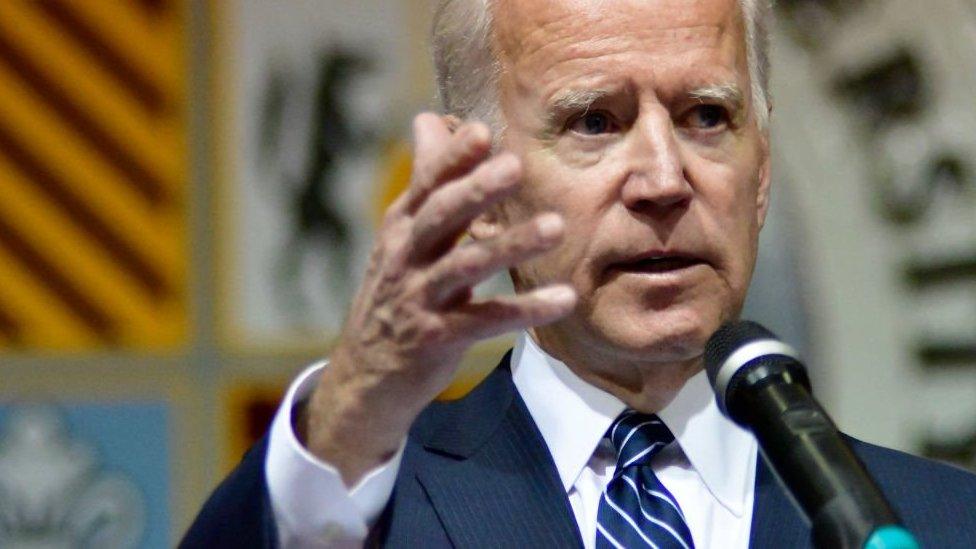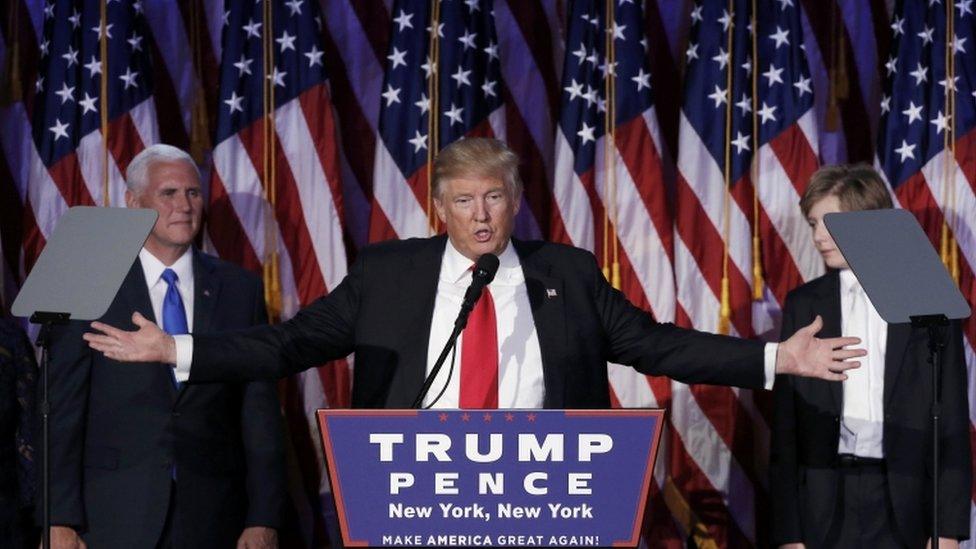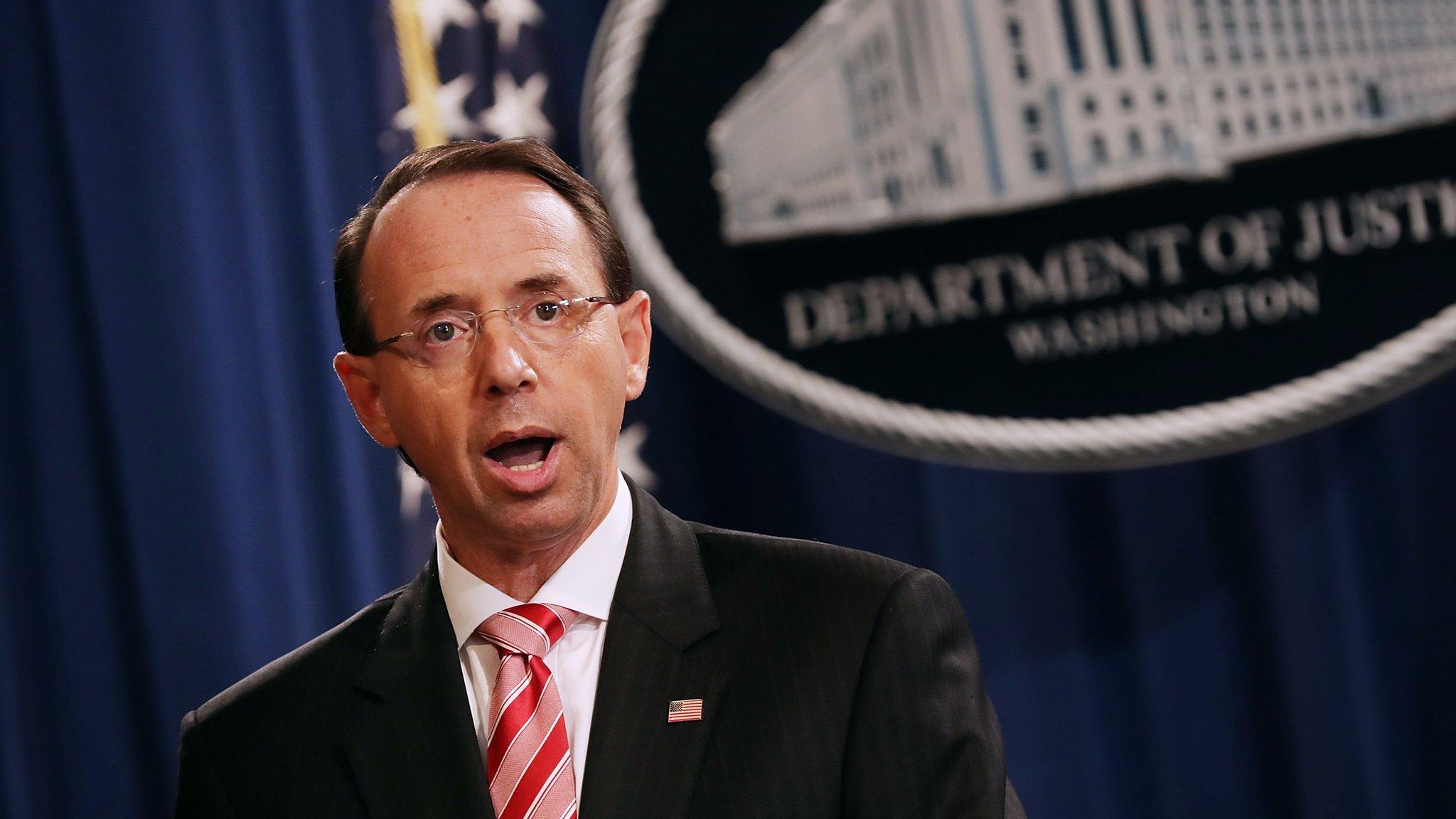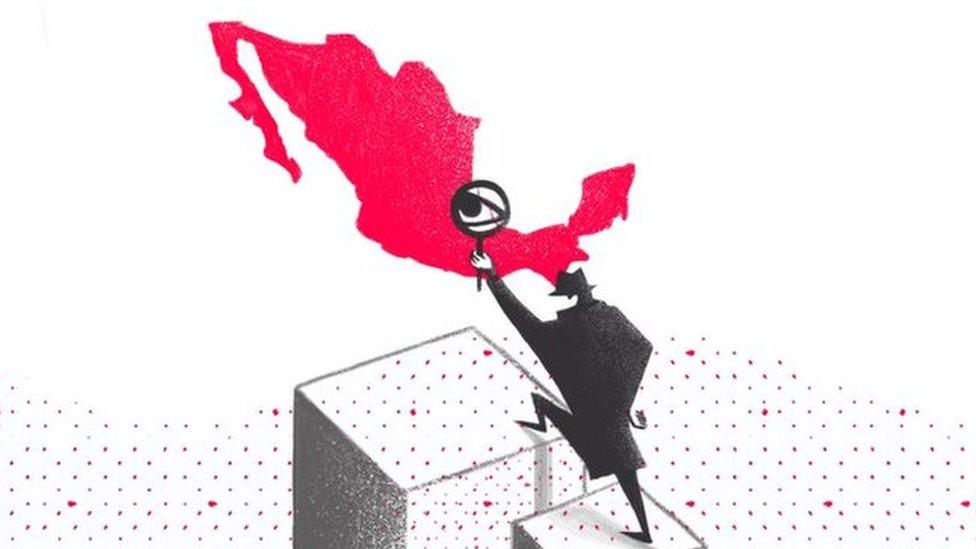Election interference to be sniffed out by early-alert system
- Published

Joe Biden joined the organisation developing the election-monitoring tool in May
An early warning system to spot attempts to subvert elections is being developed by an organisation backed by former US Vice-President Joe Biden.
The not-for-profit Transatlantic Commission on Election Integrity was created to combat efforts to skew election debate.
Its software scours social media and other parts of the net to hunt out attempts to seed subversive content.
But experts warn nation states may answer with more sophisticated tactics.
Compelling picture
"We're trying to create high reliability and easy-to-use tools for civil organisations to use and see what's happening in real time so they can counter it," said Fabrice Pothier, a spokesman for the commission.
The need for such tools became apparent after the 2016 US election, which was subject to widespread interference by Russia, said Mr Pothier.
Examples of the kinds of activity the software will watch out for include:
the use of fake accounts to spread messages on social networks
the passing of damaging information about politicians, stolen or fake, to opposition groups
the development of malware designed to spy on political figures' communications
the hacking of election computer systems
Too often, Mr Pothier said, knowledge about interference came only after votes had been cast and politicians had taken office.
"After an election, we put the picture together and can say there's been multi-dimensional interference," he said.
"One goal is to fix that analytical part by having a more systematic handle on how elections are influenced.
"It's a tool that gives us a real-time scan during a campaign of how certain groups inject information, how much is injected into social media, their interference and how it evolves and what effect it has."

President Trump has said he does not see a reason to believe allegations that Russia meddled in his election
The ability of the warning system to spot campaigns had been demonstrated during the recent Mexican presidential elections, said Mr Pothier, when it had detected subversion activity by Russian hackers and Iranian proxies working on their behalf.
No action had been taken during that election but, said Mr Pothier, the software had given a "very compelling" picture of the interference.
The software, which is being created by an unnamed company in London, is expected to get a formal launch in the summer.
Soon after it will be used to safeguard the upcoming referendum in Macedonia and elections in many European nations.

Bots have helped to dilute all election chat and make debate impossible
The tool would give nation states information about the entry points through which fake news and other disinformation was inserted on to the web, said Mr Pothier.
Action had to be taken to combat activity around these "dark" sources, he said.
"From there it goes into Twitter and Facebook - and once it gets there it can be too late to counter it," he said.
UCL researcher Juan Guzman, who has studied the use of bots on social media to spread disinformation, said he had seen evidence that groups looking to subvert elections were changing tactics.
Many, he said, had turned away from fake news to more subtle methods of "polarising debate".
One involved "flooding" chat rooms with abusive messages, not to persuade readers but to frustrate anyone trying to have a reasonable discussion of politics on the internet.
"Regardless of the actual accuracy that AI [artificial intelligence] might reach on spotting and detecting fake news, current efforts to combat them are not working," said Mr Guzman.
"This is because spreading fake news is a small part of the problem of weaponising social media for political gain - a problem in which bots play an increasingly important role."
The anti-interference campaign is broadly supported by the Alliance of Democracies, a not-for-profit group created by Anders Fogh Rasmussen - former Prime Minister of Denmark and Nato Secretary General.
- Published13 July 2018

- Published9 July 2018

- Published30 June 2018

- Published11 October 2016
